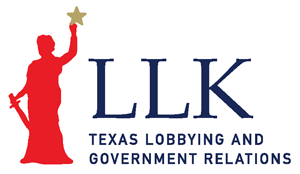It’s officially October – and short of a few small breaks the Texas Legislature is still going since their regular session January start. Members are tired, families fed-up with spouses not at home, and their employers want to know when they are coming back to work. Texas was meant to be a “part time legislature”. All bets are off there. This is resulting in multiple retirements being announced (we will cover that later in this post…)
That being said, the third special session wraps up its second week with big progress on many fronts. The House and Senate have published their first rounds of redistricting maps, there is major discussion on the distribution of federal funds, and a flurry of announcements about the upcoming primaries are keeping us all on our toes! Take a look at the Special Session 3.0 spotlight topics below.
Third Special Session
Certainly, the big spotlights of this third special session are on redistricting and fund distributions. But it’s important to keep track of what else is moving through the chambers. The Senate passed SB 1, which provides for a temporary reduction in the tax rates of a school district. In short, this means that the measure guarantees $2 billion in property tax relief with room for more if surplus revenues grow. A number of other bills are filed and referred to their respective committees. Be on the lookout for more updates from the Texas 87th third special session. And remember, the Governor is the only person that can add more issues to “the call” for the lege to consider at any time he wants to.
Redistricting
The Texas Legislature’s third special session continues to focus on its big five tasks for the month. Most notably, lawmakers have released preliminary maps for redistricting. Check them all out here!
The congressional district map will be the first that does not require federal approval since the preclearance requirement of the Voting Rights Act of 1965 was changed. This change came after review by the Supreme Court in 2013. Because the U.S. Census occurs every 10 years, this is the first round of map-making since then. Texas gained two congressional seats, bringing its total to 38 in the U.S. House of Representatives. The two new districts are tentatively in Austin and Houston, each one favoring a different political party, with the potential to affect hundreds of thousands of voters. Each district must have approximately the same number of constituents and share common interests, among other factors. In Texas, just 11 counties account for two-thirds of the state’s population increase. As for the Texas House and Senate maps that are being draw, they will determine the make of the Texas House and Senate for years to come. It’s a sensitive item for the members of the Legislature, and become a central focus in their ability to survive. This will dominate the current special. It always does. It will also determine what parties will dominate the make up of each body. It can be war internally. Us smart lobbyists stay away… but it can still affect what overall goes on under the dome.
As the maps make their way towards the finish line, they’re certain to get some changes. Keep in mind that the election primaries in 2022 will shift dates according to the completion of these redistricting maps – the later they are approved, the later the elections will be. If a redistricting plan is adopted before November 15, 2021, an application to be placed on the primary election ballot must be filed between November 29, 2021 and December 13, 2021. The general primary election date would then be March 1, 2022, and the runoff primary election date would be May 24, 2022. If a redistricting plan is adopted after November 15, 2021, but on or before December 28, 2021, the election dates shift to April 5, 2022, and June 21, 2022, respectively.
If a redistricting plan is adopted after December 28, 2021, but on or before February 7, 2022, the election dates shift to May 24, 2022, and July 26, 2022, respectively. And the dates of these races can determine turnout – as well as who gets elected. As for you current Texans, or you just moved here, get registered! As I like to say: “if you don’t vote, you can’t complain!” Well, you can, but you shouldn’t….
Distribution of Funds for Covid Federal Funds – Follow the Dollar$
Texas has approximately $16 billion in federal Covid-19 relief funds to distribute, and the task is upon the Texas Legislature to do so. Preliminary sample polls show that, out of a representative pool, over 80% of Texans support using $3 billion to improve access to water and cleanliness, $3 billion to upgrade and secure the state’s electrical grid and power generation, and $2 billion to support the expansion of broadband infrastructure and disaster response. Over 60% of Texans support spending $1 billion on cybersecurity, $1 billion on flood prevention, and $1 billion on new state parks. Over 50% support the use of $7 billion to replenish the unemployment trust fund. We look forward to seeing where it all goes! But Texas is likely to do one-time funding items only in order to not have to maintain forward spending on the “free federal Monday”. Texans know there is “no free lunch”. And we are still awaiting federal guidelines for Covid Healthcare money and how that can be used….
Election News – Audits, New Charge from Governor Abbott on Penalties
The Texas Secretary of State’s office announced a full review of the 2020 general election in Collin, Dallas, Harris, and Tarrant counties. The announcement comes shortly after the conclusion of Arizona’s own review of nearly 2.1 million votes. It cost Arizona nearly $6 million and found no evidence of fraud. In Wisconsin, a retired state Supreme Court judge is leading an ordered investigation into the 2020 election results, as well. Pennsylvania’s Attorney General sued to block a GOP-issued subpoena for election materials. In our own state, the Texas Secretary of State’s office released guidelines for its own review. The two phases are below, as distributed by the office:
Phase 1: Testing Voting Machine Accuracy, Cybersecurity Assessments, and Identifying and Removing Ineligible Voters Who Cast Ballots in 2020 (Already Completed or Underway)
- After every single Texas election, counties are required to conduct a partial manual count of electronic voting system ballots within 72 hours of the polls closing to ensure the accuracy of the tabulation of electronic voting systems results (Sec. 127.201).
- All counties are required to undergo an Election Security Assessment (ESA) of the county’s election system (Sec. 279.003). All 254 counties have completed these assessments.
- Under both state and federal law, the Texas Secretary of State’s office is empowered to maintain the accuracy of the statewide voter registration list to ensure that ineligible voters – including deceased individuals, individuals registered in multiple states or counties, and non-U.S. citizens – do not remain on the voter rolls (Secs. 18.061 – 18.0681).
- As part of the audit process, the office has received reports from the Electronic Registration Information Center (ERIC) regarding voters who may have voted twice in state and across state lines. We have also received a report of persons who may have been deceased when a vote was cast in their name. Finally, we have identified potential non-U.S. citizen voters and have directed county voter registrars to take action to verify the eligibility of registered voters and cancel their registration if they do not present proof of eligibility. Once that action has been taken, our office evaluates the persons cancelled and refers any instances of possible illegal voting to the Office of the Texas Attorney General for investigation (Sec. 31.006).
Phase 2: Comprehensive Election Records Examination (Spring 2022)
- As part of the Texas Secretary of State’s duty to assist and advise all election authorities with regard to the application, operation, and interpretation of the Texas Election Code (Sec. 31.004) and to obtain and maintain uniformity in the application of the Code (Sec. 31.003), the office will conduct a comprehensive election records examination over the next several months to ensure election administration procedures were properly followed during the 2020 General Election.
- The records examined from each county will include – but are not limited to – the following types of documents:
- Logic & Accuracy Testing Records for Voting Machines, including:
- All test ballots voted
- Test Deck Records
- Testing Media
- Early Voting and Election Day Materials, including:
- List of registered voters used in the 2020 General Election
- Daily Early Voting Rosters for in-person voting
- Chain of Custody forms that document the seals on the ballot boxes
- Chain of Custody delivery and pickup of equipment at voting sites
- Statements of Residence
- Reasonable Impediment Declarations
- Limited Ballot Applications
- Audit Logs from applicable Voting System Devices
- List of Rejected Provisional Ballots and reason for rejection
- Ballot and Seal Certificates
- Hand Delivery of a Ballot by Mail Roster and Forms
- Receipts of Sealed Early Voting Ballot Boxes
- Signature Verification Committee Materials
- Early Voting Ballot Board Materials, including:
- Receipt of Sealed Early Voting Ballot Boxes
- Poll List of Mail Voters
- Notice of Rejected Carriers and reasons
- Central Counting Station Plan
- Training Materials
- Logic & Accuracy Testing Records for Voting Machines, including:
- County election officials must retain these records for 22 months under both federal law (52 USC 20701) and state law (Texas Election Code Sec. 66.058).
- All of this information is available to the general public (Sec. 1.012).
- After a thorough examination of the abovementioned records and materials in each county, irregularities or deviations from election administration procedures that may have affected the accuracy of the electronic voting system ballot count could trigger a full manual recount of ballots in the affected precincts or polling locations, pursuant to the Secretary of State’s authority to ensure the accuracy of the tabulation of electronic voting system results (Sec. 127.202).
This has been a divisive issue along party lines. And may about to get more attention. The Democrats have finally returned from breaking quorums… and we have a new call from the Governor to increase penalties from the election reform bill finally passed after a regular and two special sessions…. Stay tuned on this.
Texas Primaries
This week, Brian Harrison beat former Rep. John Wray for the House District 10 seat. A wave of other announcements have been made, too. Matthew Dowd, former ABC commentator and political strategist, seeks to challenge incumbent Lieutenant Governor Dan Patrick. State Rep. Jim Murphy is not seeking reelection in District 133 when his current term ends in 2023. Both Chair Paddie and Chair Murphy are not seeking reelection, and Rep. Celia Israel will not, either. Rep. Phil King announced his plan to run for the proposed Senate District 10 seat. Rep. Tan Parker announced for Chair Nelson’s former seat in state Senate District 12. Former Senator Pete Flores plans to run for the proposed Senate District 24 seat. There will be quite a number of changes to the legislature come next fall! And rumors of more retirements to come in future days. Regardless, after redistricting and retirements, there is expected to be a lot of change to the legislative membership next regular session.
Until next time,
Lara Laneri Keel
President, LLK, LLC.


